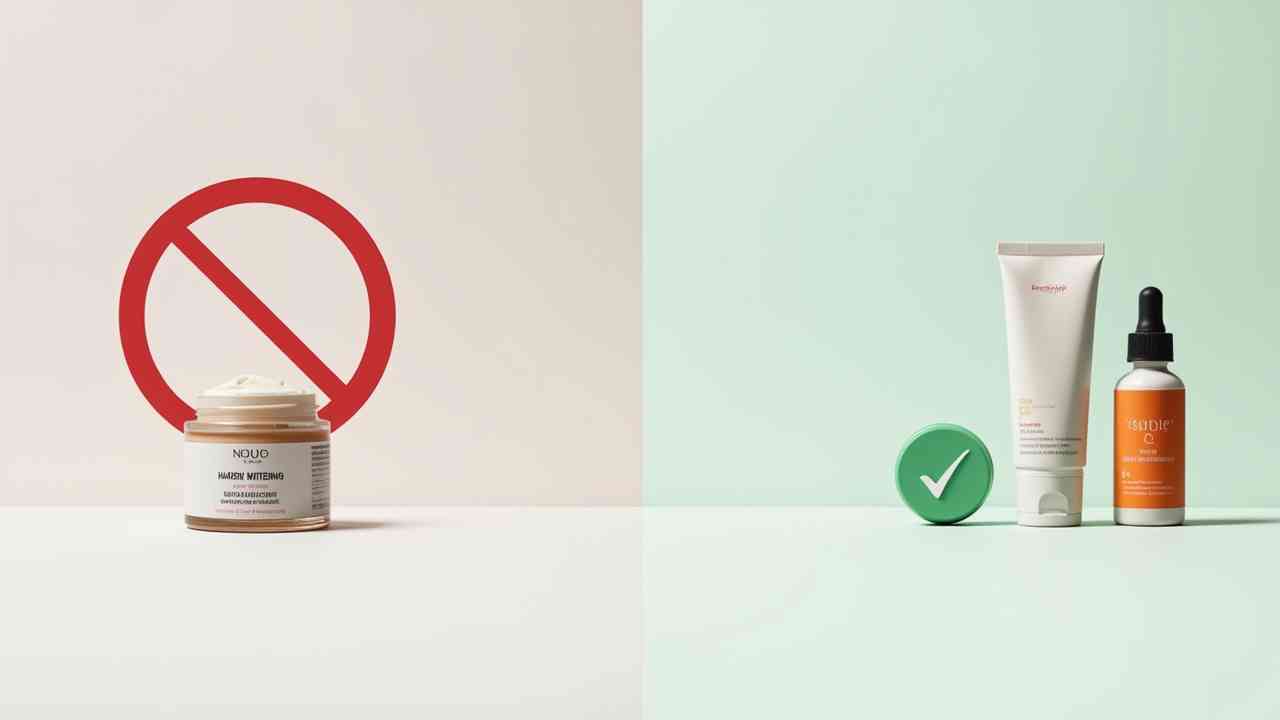
💡 How to Brighten Dark Areas on Skin (A Dermatologist's Guide)
💡 A Dermatologist's Guide on How to Brighten Dark Areas on Your Skin 💡
❗ CRITICAL HEALTH AND SAFETY WARNING: The desire to lighten skin can lead people to use dangerous and unregulated skin bleaching products. These can contain harmful ingredients that cause permanent damage. A healthy goal is to brighten and even out your skin tone by fading dark spots, not to change your natural skin color. Always consult a board-certified dermatologist for concerns about your skin.
Dark areas on the skin, known as hyperpigmentation, are a very common concern. They can appear as sun spots, dark marks left after acne, or larger patches of discoloration. The goal of a healthy skincare routine is to address these issues safely and effectively.
This guide will explain the science-backed, non-bleaching methods to help you lighten dark areas on your skin. It is about achieving a luminous, even complexion. ✅
🤔 First, What Causes Dark Areas on the Skin?
Hyperpigmentation is caused by an overproduction of melanin. Melanin is the natural pigment that gives your skin its color. This overproduction can be triggered by a few main factors:
- Sun Exposure: This is the number one cause of most dark spots (solar lentigines).
- Inflammation: This is called Post-Inflammatory Hyperpigmentation (PIH). It is the dark mark left behind after a pimple, scratch, or bug bite has healed.
- Hormonal Changes: Hormonal fluctuations can trigger a type of pigmentation called melasma.
☀️ What is the Most Important Step for an Even Skin Tone?
The number one, most critical step for achieving a brighter, more even complexion is sun protection. The sun's UV radiation is the primary cause of hyperpigmentation. All your efforts will be wasted if you do not protect your skin from further damage.
You must wear a broad-spectrum sunscreen with at least SPF 30 every single day. This is non-negotiable. Even on cloudy days, UV rays can cause pigment to form. Sunscreen is your most important brightening product. ☀️
- What Are the Best Topical Ingredients for Brightening Skin?
To actively fade dark spots, you need to use specific "active" ingredients. These are the most proven and effective options to look for in your skincare.
1. Why is Vitamin C the Gold Standard?
Vitamin C is a powerhouse antioxidant. It protects your skin from environmental damage. More importantly, it is a tyrosinase inhibitor. This means it helps to block the enzyme responsible for creating excess pigment. It is fantastic for fading dark spots and giving the skin an overall glow.
2. How do Exfoliating Acids help?
Chemical exfoliants like AHAs (Alpha-Hydroxy Acids) are brilliant for improving brightness. Ingredients like glycolic acid and lactic acid work by dissolving the dead skin cells on the surface. This instantly reveals the smoother, more radiant skin underneath.
3. What is the role of Retinoids?
Retinoids (like retinol) work by speeding up your skin's cell turnover rate. This helps to shed pigmented cells more quickly. It also helps to prevent new dark spots from forming. It is a fantastic long-term solution for maintaining an even tone.
- What About Professional Treatments?
For more significant or stubborn pigmentation, the safest and most effective option is to see a board-certified dermatologist. They can offer:
- Prescription-strength retinoids or hydroquinone.
- Chemical peels.
- Laser treatments (like IPL).
The journey to brighter skin is a marathon, not a sprint. With a consistent routine of protection and treatment, you can achieve a healthy, beautiful, and radiant complexion. ✨